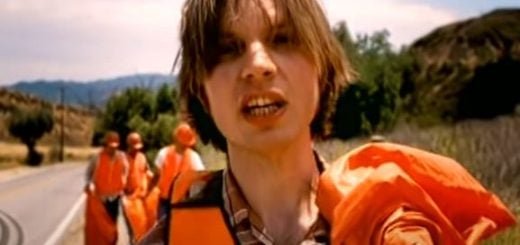End Of The Day by Beck Lyrics Meaning – The Twilight Refrain and its Lyrical Odyssey
Lyrics
Not a lot to say, not a lot to do
You played the game, you owe nothing to yourself
Rest today, for tomorrow you can’t tell
You can’t tell
I’ve seen the end of the day come too late
Seen the love you had turning into hate
Had to act like I didn’t even care
But I did so I got stranded standing there
Standing there
It’s nothing that I haven’t seen before
But it still kills me like it did before
No, it’s nothing that I haven’t seen before
But it still kills me like it did before
I’ve seen the end of the day come too soon
Like the prison dogs they set out after you
You owe nothing to the past but wasted time
To serve a sentence that was only in your mind
In your mind
It’s nothing that I haven’t seen before
But it still kills me like it did before
No it’s nothing that I haven’t seen before
But it still kills me like it did before
In the pantheon of modern troubadours, Beck stands as a chameleon and a prophet. His musical alchemy conjures an eclectic array of sounds, weaving tapestries that blur the lines of genre and form. ‘End of the Day,’ a track from Beck’s contemplative opus ‘Sea Change,’ serves as a somber meditation on time, loss, and the banality of existence.
The song’s ostensibly straightforward title belies a rich tapestry of existential musings, as listeners embark upon a lyrical journey that marries the nondescript with the profound. This exploration dives deep into Beck’s evocative imagery and staggering simplicity, extracting the essence of what makes ‘End of the Day’ a beacon in the fog of passing time.
Racing Against the Dying Light – The Temporal Anxiety
Time, the ever-running thief, sets the stage in ‘End of the Day.’ With a chilling resonance, the lyrics illustrate a common human tension: the premature arrival of the day’s end leaving ambitions unfulfilled and words unspoken.
Beck captures the universal angst stemming from temporal limitations—every ticking clock engraves a reminder of chances slipping away. ‘Not a lot to say, not a lot to do’ becomes a haunting refrain against the futility of action when the day seems to hold no more promises.
The Disenchanted Lovers’ Requiem
Amidst the passage of time lies the deterioration of love. With a narrative potency, Beck recounts the tragic metamorphosis from affection to animosity. His stark confession, ‘Seen the love you had turning into hate,’ echoes the silent battlegrounds of hearts turned cold.
The artist’s portrayal of emotional detachment—’Had to act like I didn’t even care’—suggests a coping mechanism with which many listeners may painfully identify. Those words speak to the very human response to shield oneself from the pain of love’s corrosion.
A Deja Vu of Despair – The Song’s Hidden Meaning
Peering beneath the surface, Beck’s juxtaposition—’It’s nothing that I haven’t seen before / But it still kills me like it did before’—suggests a weary familiarity with life’s cyclical hardships. It hits at the heart of existential ennui, and the hollow feeling of history repeating itself.
This profound resignation to recurring heartache evokes a sense of Sisyphean struggle, where each emotional rebirth leads ultimately back to a familiar demise. The enigmatic allure lies in the acceptance of this pattern as an integral part of the human condition.
Memorable Lines Etched in Melancholy
‘Like the prison dogs they set out after you / You owe nothing to the past but wasted time’—in these vivid lines, Beck personifies the past as a relentless pursuer, one that is unforgiving and inescapable. Yet it also frees by emphasizing the futility in clinging to what has already transpired.
The metaphorical imagery speaks to the entrapment of dwelling in history’s shadow and the liberation that may come with releasing oneself from its chains. The past, Beck implies, should not be a sentence served but a lesson learned.
The Persistent Sting of Resilience
There is a striking dichotomy that closes the thematic circle of ‘End of the Day.’ Even as Beck acknowledges the repetitive torment of his experiences, there lies an undercurrent of resilience in the face of existential pain—’But it still kills me like it did before.’
His acknowledgment of the pain’s persistence implies not a resignation to defeat but a recognition of his continuous battle. And within this fight, every listener finds solace, if not companionship, in knowing that their own struggles against the dying of the light are universally shared, by none less than Beck himself.








